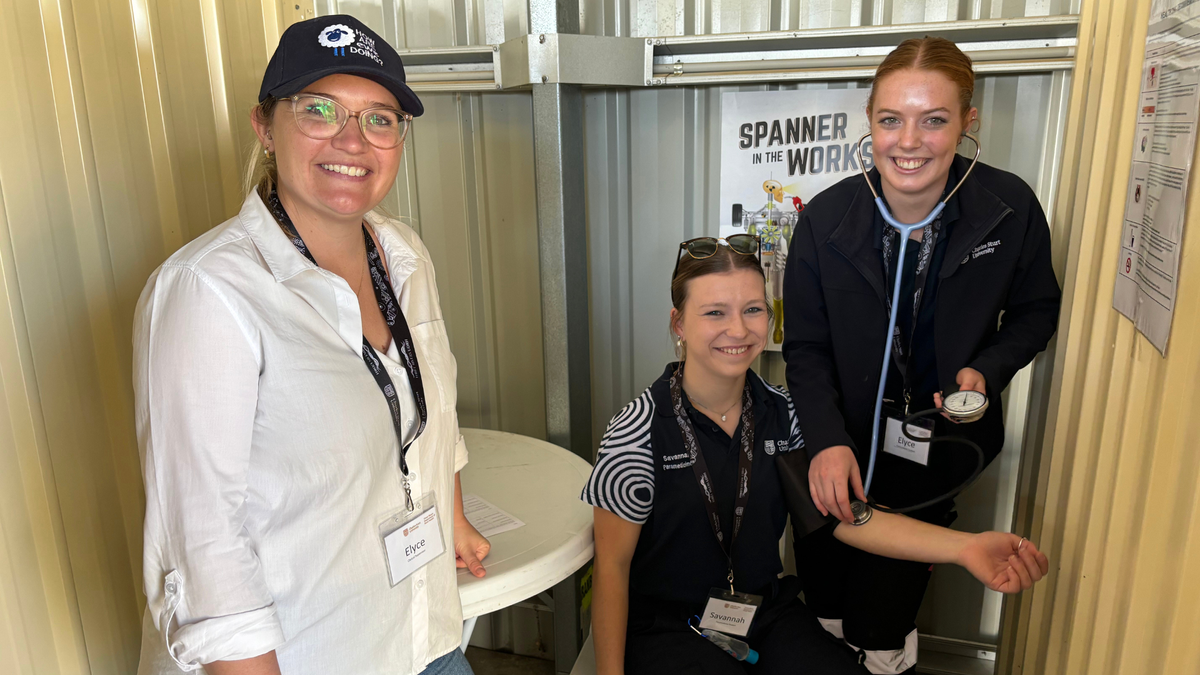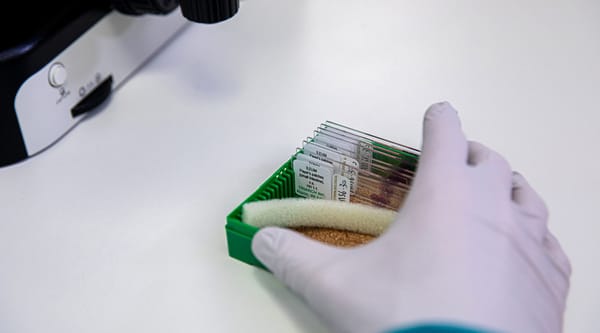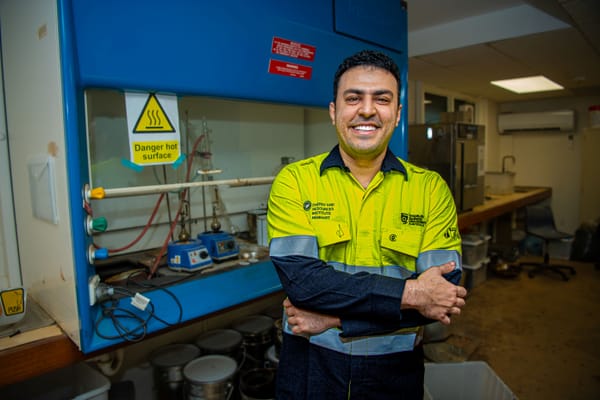Research connects student learning with community experiences
Research projects continue to emerge from the hundreds of health checks Charles Sturt paramedicine students have conducted at the Henty Machinery Field Days.

First published by Charles Sturt University
- Charles Sturt collaborates with Australian Men’s Shed Association and MLHD for Spanner in the Works? program
- Paramedicine students conducted health promotion conversations with 784 community members at the Henty Machinery Field Days this year
- Researchers from the University have conducted multiple studies based on data from the program since its inception in 2018
Charles Sturt University is teaching its paramedicine students vital clinical and interpersonal skills while making it easy for rural men to check in on their health.
Fifteen paramedicine students from Charles Sturt spent three days at the Henty Machinery Field Days (HMFD) last week conducting health promotion conversations with men attending the agricultural event.
The health checks included calculations of body mass index, measurements of blood pressure and waist circumference, mental wellness conversations and general discussion of health screening requirements according to age.
The health promotion is based on the ‘Spanner in the Works?’ program and is facilitated by Charles Sturt’s Three Rivers Department of Rural Health (DRH) in collaboration with Australian Men’s Shed Association and the Farm Community Counselling Service at Murrumbidgee Local Health District (MLHD).
Charles Sturt has been conducting health conversations at the Henty Machinery Field Days since 2018, excluding two years during COVID-19. Fifty-seven paramedicine students have conducted more than 1,900 health promotion conversations during that time.
Thirteen students conducted 566 health conversations at the HMFD in 2023 and 15 students conducted 784 health conversations in 2024.
The insights gained into rural men’s physical and mental health have led to multiple research projects for Charles Sturt’s Rural Health Education team at Three Rivers DRH, led by Dr Elyce Green.
“The program is evaluated each year via research projects that take different approaches, allowing us to improve the program from multiple perspectives,” Dr Green said.
“We have to look at the reach of the program in relation to the target audience.”
In 2020, she co-authored a study on ‘Reaching at-risk rural men: An evaluation of a health promotion activity targeting men at a large agricultural event’, based on data collected at the HMFD.
The data collected in 2023 explored the impact of the health promotion program on how students conduct conversations about mental health, which is currently being prepared for publication.
This year, her team conducted interviews with community members for research on why rural men participate in a student-led health promotion activity and what impact it has on them.
“We spoke to 60 men who had engaged in a health conversation and asked them for their feedback.
“They told us that that bringing health promotion to the community is vital, and that they were keen to provide a learning opportunity for our future paramedic workforce.
“Importantly, many of the men had visited us before.
“One of the participants said that the health conversation had changed his life and he had since lost 30kg, reduced his blood pressure and dramatically improved his quality of life.”
Dr Green said the program provides vital health information to the rural community while providing students with the chance to learn how to talk to community members about their health.
“While providing a rural, community-based placement experience that demonstrates the opportunities in rural practice, we are also enhancing the skills of paramedicine students in health promotion and assessment,” she said.
Before the placements, students complete a Mental Health First Aid course online and attend a full day of orientation and group connection.
Students are supported during the placement by an interprofessional group of clinicians from Charles Sturt and can escalate concerns and seek support from their supervisors.
Dr Green and her colleagues have also conducted studies on the learning benefits for students of these short-term programs. The research here included learning opportunities afforded to student paramedics and exploring localised learning during a short-term health placement.
Student feedback about the placements has been positive, with participants saying it boosted their confidence and clinical skills.




